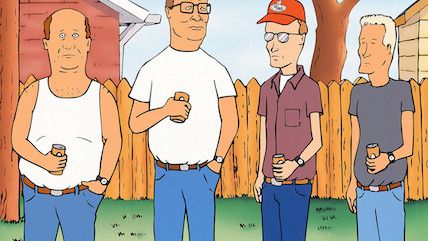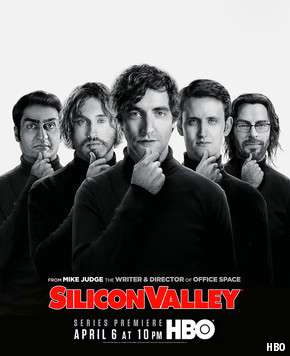The Mind of Mike Judge
A satirist's worldview


Willy Staley has written an entertaining profile of Mike Judge for The New York Times Magazine; if you like the writer/director/actor's work at all, I recommend reading it. I don't want to spoil any of the article's anecdotes by quoting them here, so instead I'll highlight this passage:
If you set aside his long-running TV show "King of the Hill," which is much too loving to be considered satire, Judge's corpus of work cleaves neatly into two pieces. In one, people are driven nearly to ruin in their efforts to escape the crush of immense managerial apparatuses ("Office Space," "Extract"). In the other, we see the opposite—imbeciles left completely and terrifyingly to their own devices ("Beavis and Butt-Head," "Idiocracy"). "Silicon Valley," remarkably, fuses both of these impulses. The tech world it skewers is the most dynamic sector of our economy, possibly representing the greatest concentration of brainpower and capital ever seen in human history, creating products that insinuate their control into every last corner of our lives. And yet it's nevertheless lousy with man-children who seem to want nothing more than the ability to prolong adolescence, theirs and ours alike, and have the means and the license and the asinine product ideas to do so.

With one big caveat, I think that's a nice summary of how Judge's perspective manifests itself in his work. (It also helps explain why I prefer Office Space to Idiocracy: Both are funny, but only one really resonates with my worldview.) The caveat is that King of the Hill was shot through with satire, no matter how loving it could be. It's just that the series was a lot more willing to leave an imbecile to his own devices. Hank was naive, Bill was a loser, Boomhauer was barely coherent, and Dale was a raving paranoid, but they balanced each other out; everyone's good qualities made up for everyone else's flaws. The show's most reliable villains were interfering outsiders: regulators, ideologues, managers with MBAs, Ritalin-dispensing doctors. When such forces left it alone, their little suburb was able to take care of itself. You'll have to decide for yourself how much that represents a sunny side to Judge's outlook and how much it merely reflects the utopian conventions of the small-town sitcom.
Judge's current project is Silicon Valley, and most of the Times profile is focused on that. The show's "implicit suggestion," Staley writes, "is that if you want to see how the tech world's ostensibly freewheeling nature conceals a willingness to be party to systems of bureaucratic and governmental control—not to mention how it runs on a crass sort of hucksterism, and how it might represent a terrible misallocation of wealth and intellect—all you really need to do is look straight at it." To read the rest, go here.


Show Comments (80)